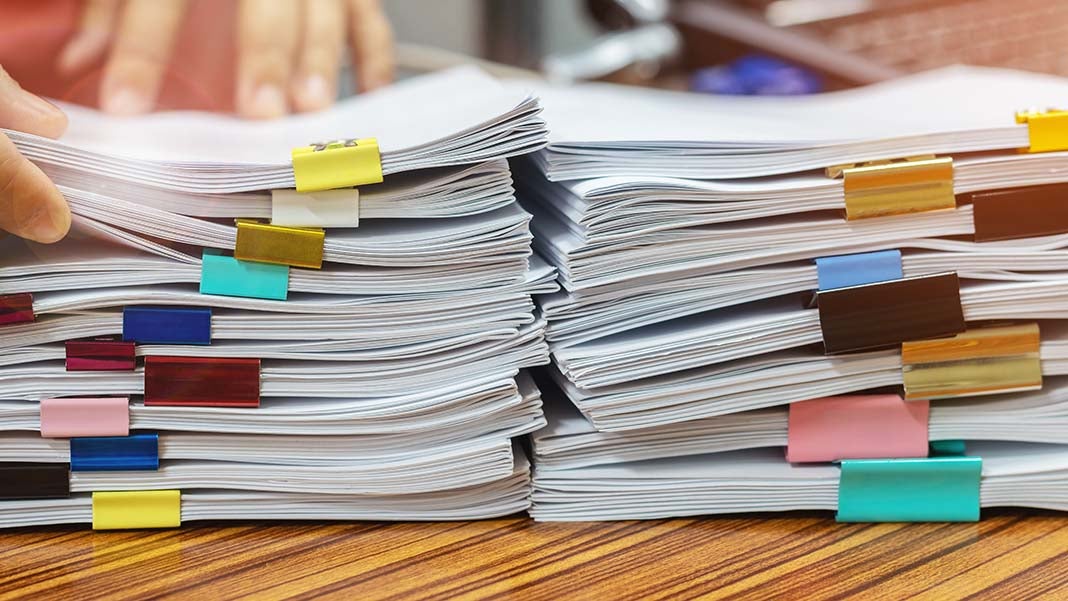5 Essential Documents for Filing Taxes

Introduction

Filing taxes can often feel like navigating through a labyrinth of paperwork, financial details, and legal jargon. However, ensuring you have all the necessary documents can simplify the process significantly. This guide will walk you through the 5 essential documents you need to gather before filing your taxes. From personal identification to various income-related forms, here’s everything you need to make tax season less stressful.
1. Personal Identification Documents

The first step in any tax filing process involves proving your identity:
- Social Security Number (SSN) or Individual Taxpayer Identification Number (ITIN)
- Your current driver’s license or state ID
- Valid passport for nonresident aliens
These documents confirm your eligibility to file taxes and are critical for matching your information with that on file with the IRS.
2. W-2 Forms

W-2 forms are issued by employers to report employee wages and withheld taxes:
- Required from every employer you worked for during the tax year
- Details include total earnings, federal income tax withheld, social security wages, and Medicare wages
These forms are crucial for calculating your taxable income and any potential refund or tax liability.
3. 1099 Forms

If you’ve had income outside traditional employment, 1099 forms cover various income sources:
| Form | Description |
|---|---|
| 1099-NEC | Non-employee compensation for independent contractors or freelancers |
| 1099-MISC | Other miscellaneous income including rent, royalties, medical/healthcare payments |
| 1099-INT | Interest income from bank accounts or certificates of deposit |
| 1099-DIV | Dividends and distributions from investments |
| 1099-B | Proceeds from broker and barter transactions |
| 1099-R | Distributions from retirement accounts like pensions, annuities, or retirement plan distributions |

💡 Note: Ensure you receive all versions of 1099 forms if applicable to your financial situation.
4. Deduction and Credit Documentation

To maximize your tax benefits, you’ll need documentation for deductions and credits:
- Home mortgage interest statements (Form 1098)
- Charitable donation receipts
- Education expenses (Form 1098-T)
- Health Insurance Marketplace Statement (Form 1095-A)
- Business expenses records
These documents help reduce your taxable income or increase your tax refund through various credits and deductions.
5. Receipts for Estimated Tax Payments and Refunds

If you’ve made estimated tax payments or received a refund:
- Keep track of any estimated tax payments made to the IRS during the tax year
- Record any tax refunds or payments applied from previous years
- Retain any documentation related to tax refunds received or refund offsets
This helps in calculating your total tax liability or the amount due to you in refunds.
🔖 Note: Keep these records for at least three years as per IRS recommendations, even after filing.
Filing taxes doesn't have to be an overwhelming task. By ensuring you have these 5 essential documents in order, you pave the way for a smoother, more accurate tax return. Remember, preparation is the key to a successful tax filing experience. Whether you're doing it yourself or hiring a professional, having all your paperwork organized will streamline the process and potentially save time and money. Keep these records secure, organized, and accessible, and you'll approach tax season with confidence and ease.
What if I lose one of my W-2 forms?

+
You can request a copy from your employer or contact the IRS for a wage and income transcript. They can provide the information necessary for filing your tax return.
Are charitable donations deductible if I don’t itemize?

+
Under the Tax Cuts and Jobs Act, you can claim a deduction for cash contributions up to $300 even if you don’t itemize, but larger donations require itemization.
Do I need to keep physical receipts for tax documents?

+
While physical receipts are recommended for audit purposes, digital copies or scanned documents can also be accepted by the IRS if they are legible and accurate.